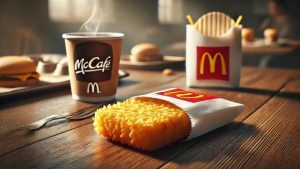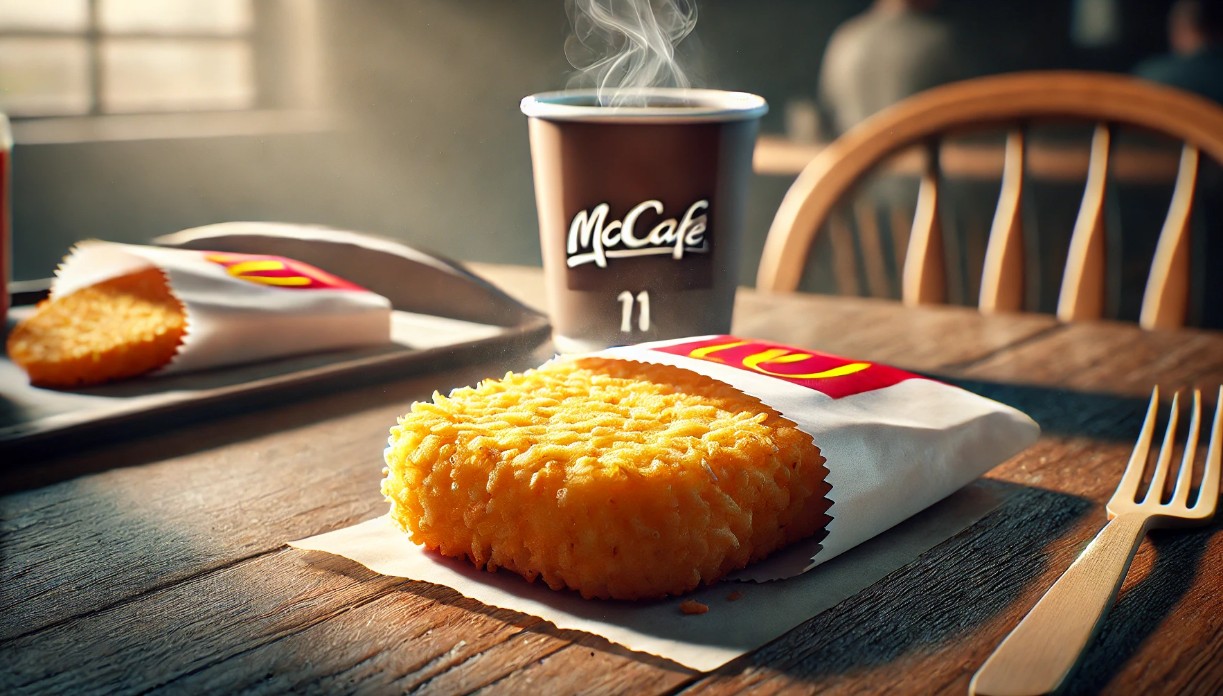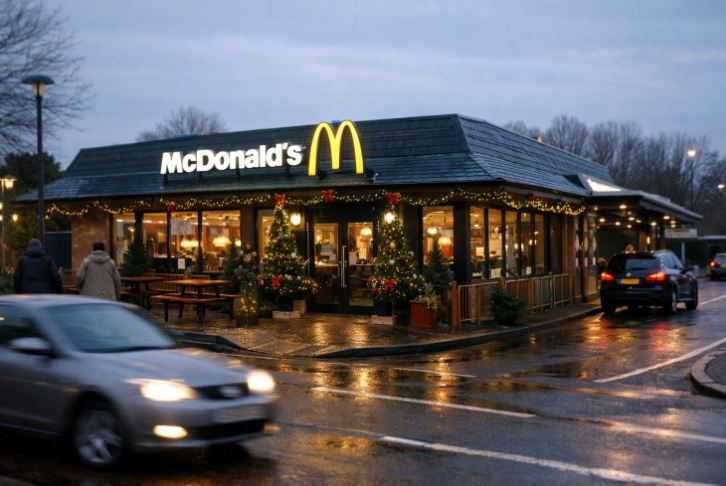McDonald’s hash browns are a breakfast staple, enjoyed by millions for their crispy texture and savoury flavour. Whether paired with a breakfast sandwich or eaten on their own, they have become a go-to choice for those seeking a quick and satisfying morning meal.
However, with increasing awareness of nutrition and healthy eating, many people are beginning to question whether McDonald’s hash browns are a good choice for their diet.
Are they simply a tasty indulgence, or can they fit into a balanced meal plan? How many calories do they contain, and what impact do they have on overall health?
This article explores the calorie content, nutritional value, ingredients, and health effects of McDonald’s hash browns. It also compares them with other fast-food hash browns, examines healthier breakfast alternatives, and provides insights into how they can fit into a balanced lifestyle.
How Many Calories Are in a McDonald’s Hash Brown?

A single McDonald’s hash brown in the UK contains 127 calories (532 kJ), making it a relatively light breakfast item when compared to other fast-food options. However, calories alone do not determine whether a food is healthy. It is also important to consider the levels of fat, carbohydrates, protein, and sodium in each serving.
Nutritional Breakdown Per Portion
| Nutrient | Amount per Hash Brown | % Daily Value (RI) |
| Energy | 127 kcal / 532 kJ | 6% RI |
| Fat | 7.4g | 11% RI |
| Saturated Fat | 0.7g | 4% RI |
| Carbohydrates | 13g | 5% RI |
| Sugars | 0.2g | 0% RI |
| Fibre | 1.2g | – |
| Protein | 1.1g | 2% RI |
| Salt | 0.64g | 11% RI |
These numbers indicate that while McDonald’s hash browns are not excessively high in calories, they do contain a notable amount of fat and sodium. This makes them a food that should be consumed in moderation, especially for those trying to maintain a healthy diet.
What Are the Ingredients in McDonald’s Hash Browns?
McDonald’s hash browns are made using simple yet processed ingredients. The primary ingredient is potatoes, which are cut, seasoned, and shaped before being deep-fried in vegetable oil. However, there are additional ingredients that contribute to their texture, taste, and shelf life.
Full Ingredients List
- Potatoes: The main ingredient, providing carbohydrates and some fibre.
- Non-Hydrogenated Vegetable Oils: A blend of sunflower and rapeseed oil is used for frying.
- Salt: Adds flavour but also increases sodium intake.
- Maize Flour & Dehydrated Potato: Helps improve texture and consistency.
- Dextrose: A natural sugar that enhances browning and flavour.
- Stabiliser (Diphosphates:– Used to maintain the shape and texture of the hash brown.
- Black Pepper Extract: A seasoning ingredient that enhances the flavour.
Allergen and Dietary Information
- McDonald’s hash browns are vegan-friendly, meaning they do not contain any animal-derived ingredients.
- However, they are cooked in the same oil as the Red Pepper and Pesto Goujon, which contains ingredients such as yellow split peas, tomato, and gluten-free breadcrumbs.
- While McDonald’s follows strict food safety procedures, cross-contamination is still a possibility, making them unsuitable for those with severe food allergies.
Are McDonald’s Hash Browns a Healthy Choice?

When evaluating whether McDonald’s hash browns are a healthy choice, it is essential to consider both their nutritional benefits and drawbacks.
Potential Benefits
- Low in calories: With only 127 kcal, they are not as calorie-dense as other fast-food breakfast items.
- Vegan-friendly: Suitable for individuals following a plant-based diet.
- Contains some fibre: Provides a small amount of dietary fibre, which is beneficial for digestion.
Potential Drawbacks
- High in fat: 7.4g of fat per serving, which contributes to 11% of the recommended daily intake.
- Contains added salt: 0.64g of sodium per portion, making up 11% of the daily recommended limit.
- Processed ingredients: Includes stabilisers and added sugar (dextrose), making it a processed food rather than a whole-food option.
While hash browns can be part of a balanced diet when eaten occasionally, consuming them regularly may contribute to excessive fat and sodium intake.
How Do McDonald’s Hash Browns Compare to Other Fast Food Hash Browns?
To understand whether McDonald’s hash browns are a better option than other fast-food hash browns, here is a comparison with similar products from major competitors:
| Fast Food Chain | Calories | Fat | Salt |
| McDonald’s UK | 127 kcal | 7.4g | 0.64g |
| Greggs | 135 kcal | 6g | 0.4g |
| Burger King | 140 kcal | 9g | 0.6g |
| KFC | 145 kcal | 10g | 0.7g |
Compared to other fast-food brands, McDonald’s hash browns have fewer calories than those from Burger King or KFC but still contain a moderate amount of fat and salt.
What Are Some Healthier Breakfast Alternatives to McDonald’s Hash Browns?

For those looking for a healthier breakfast, here are some alternatives that are lower in fat and sodium while still being satisfying:
Healthier McDonald’s Breakfast Options
- Porridge (154 kcal): A warm, fibre-rich breakfast choice.
- Fruit Bag (46 kcal): A natural, low-calorie alternative.
- Egg & Cheese McMuffin (295 kcal): A higher-protein option.
Homemade Alternatives
- Baked sweet potato hash browns: A healthier option with more nutrients and less fat.
- Oven-baked hash browns: Can be made with minimal oil for a lower-calorie version.
- Avocado on wholemeal toast: A nutrient-dense and filling breakfast choice.
How Can You Burn Off the Calories from a McDonald’s Hash Brown?
For those mindful of calorie intake, here’s how much physical activity it takes to burn off one McDonald’s hash brown (127 kcal):
| Activity | Time Required |
| Walking (3 mph) | 35 minutes |
| Jogging (6 mph) | 15 minutes |
| Cycling (moderate) | 20 minutes |
| Swimming (moderate) | 18 minutes |
| Jump rope | 10 minutes |
By incorporating exercise into daily routines, occasional indulgences like hash browns can be balanced within a healthy lifestyle.
Conclusion
McDonald’s hash browns are a tasty and convenient breakfast option, but their fat and sodium content makes them a food best consumed in moderation. While they contain 127 kcal per serving, their deep-fried preparation adds unnecessary fats and processed ingredients.
For those seeking a healthier breakfast, porridge, fruit, or baked alternatives may be better choices. However, for occasional enjoyment, McDonald’s hash browns can still be part of a balanced diet.
FAQs
How many calories are in a McDonald’s hash brown UK?
A McDonald’s hash brown in the UK contains 127 kcal (532 kJ), along with 7.4g of fat and 0.64g of salt.
Are McDonald’s hash browns deep-fried?
Yes, they are deep-fried in a blend of vegetable oils, including sunflower and rapeseed oil.
Can McDonald’s hash browns be part of a weight-loss diet?
They can fit into a calorie-controlled diet if eaten occasionally, but their fat and sodium content makes them less ideal for frequent consumption.
What is the fat content of a McDonald’s hash brown?
Each McDonald’s hash brown contains 7.4g of fat, including 0.7g of saturated fat.
Are McDonald’s hash browns vegetarian and vegan?
Yes, McDonald’s hash browns in the UK are vegan-friendly, but they may be cooked in the same oil as other products containing allergens.
What is the healthiest McDonald’s breakfast option?
Some healthier choices include porridge, fruit bags, and the Egg & Cheese McMuffin.




